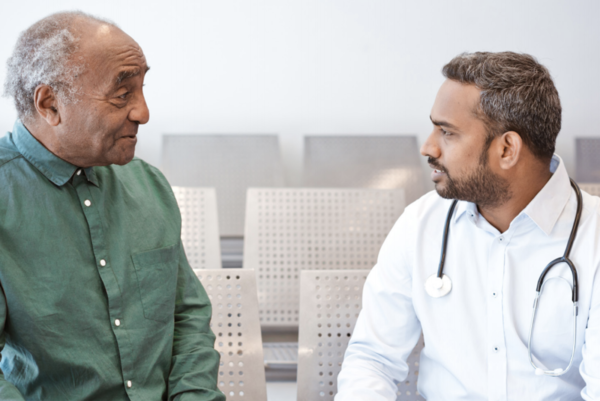Aging Right @ Home is a monthly blog series, answering your questions on providing care for individuals with disabilities, loved ones with dementia and older adults aging in place. If you have a question, please submit it to [email protected].
 It’s not hard to notice, and the statistics confirm it: Women tend to live longer than men. U.S. Census data show that there are only half as many men over the age of 80 as women. Additionally, more than 80% of centenarians are women, and men in almost every country have a shorter life expectancy.
It’s not hard to notice, and the statistics confirm it: Women tend to live longer than men. U.S. Census data show that there are only half as many men over the age of 80 as women. Additionally, more than 80% of centenarians are women, and men in almost every country have a shorter life expectancy.
What explains this seeming paradox?
It is most likely a combination of factors. From a biology standpoint, gender-related differences in genes, hormones and the immune system make men more susceptible to inflammation, heart disease and high blood pressure. Behavioral differences exist as well. Men are more likely to smoke, consume more alcohol and take part in other risky behaviors. Attitudes toward health care is also a big contributing factor. Men are less likely than women to have regular doctor visits. Because men are more susceptible to health concerns, here are some key areas to address.
Talking to men about health matters.
If you have an older male family member or loved one, encourage them to make healthy lifestyle choices, such as eating well, giving up smoking, getting enough exercise and managing stress. It’s important to also talk about health care with them. Ask them how long it’s been since they saw a doctor. Research shows that many male patients underplay health problems during conversations with their doctor, but they may be more likely to be truthful and forthcoming with you. Help them stay on top of regular check-ups, including tests of blood pressure, cholesterol and blood sugar; screenings for prostate, colorectal and skin cancer; and vision and hearing tests. Discuss emotional health as well — health care includes mental health as well.
Care support at home for older men.
Most senior men prefer to age in place in their own homes, but health challenges may make that unsafe without assistance. They may avoid asking for help from family members — or they might require a lot of help and feel bad about it. Professional in-home caregivers provide assistance with personal care, prepare nutritious meals, and transport clients to medical appointments and exercise opportunities.
If you or your loved one is looking for support, at home senior care providers, such as Right at Home, will carefully match caregivers with clients. Having professional support can be of benefit in a variety of ways — from companionship that wards off loneliness to an extra focus in senior health. Right at Home care experts work with families to support the needs of senior loved ones and family caregivers alike. Contact me today and ask for a care consultation or let me know if I’m able to provide any other assistance to you and your family.
Your neighbor, and Owner/President of Right at Home of Northern Virginia,
Phillip Turner, CDP, CSA
Each month readers can submit questions to Phillip Turner (CSA, CDP), the Owner and Executive Director of Right At Home Northern Virginia, one of the area’s largest and longest-serving providers of in-home senior care.
As a Certified Senior Advisor (CSA) and a Certified Dementia Practitioner (CDP), Phillip is passionate about providing individualized care, enthusiastic management services and collaborating with other health care providers. If you have a question, please submit it to [email protected].



